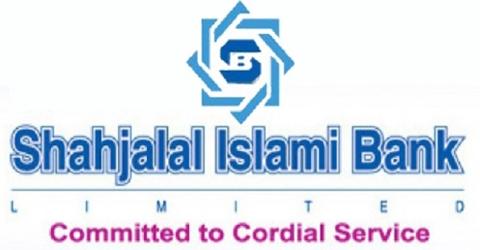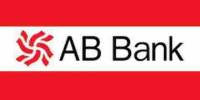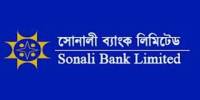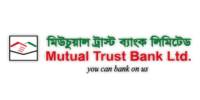Main objective of this report is to analyze the trends of modern banking training systems, here focus on Shahjalal Islami Bank Limited banking overview. Other objectives are to identify the present state of the training program of Shahjalal Islami Bank and to observe the effectiveness of the training program. Also observe the employee reaction towards the training program and to know about the modest of investment in Islamic Banks. Finally provide the recommendation for improvement of training systems.
Introduction:
The word “Bank” refers to the financial institution deals with money. Commercial banks are the primary contributors to the economy of the country. On the other hand they are borrowing money from the locals and lending the same to the business as loans and advances. So the people and the government are very much dependent on these banks as the financial intermediary. Moreover, banks are profit – earning concern, as they collect deposit at the lowest possible cost and provide loans and advances at higher cost. The differences between two are the profit for the bank.
Objective of the report
The primary objective of this report is to comply with the requirement of my course. But the objective behind this study is something broader. The principal intent of this report is to analyze the trends of modern banking training systems. Objectives of the study are summarized in the following manner:
- To identify the present state of the training program of Shahjalal Islami Bank Limited (SJIBL)
- To observe the effectiveness of the training program of SJIBL.
- To observe the employee reaction towards the training program.
- To know about the modest of investment in Islamic Banks.
- To provide the recommendation for improvement of training systems of (SJIBL)
- Finally, to sketch out the overview of (AIBL)
Methodology of the Study:
Data Collection:
Secondary Source:
- HR manual of the Shahjalal Islami Bank Limited.
- Archiving Instruction Manual of the Shahjalal Islami Bank Limited.
- Prior research Report.
- Web site of Shahjalal Islami Bank.
- Internet browsing ( to know about the detail of archiving management system)
Primary Source:
The “Primary Sources” are as follows-
a) Face-to-face conversation with the respective officers and staffs of the Branch.
- Informal conversation with the clients.
- Practical work exposures form the different desks of the four departments of the Branch covered.
b) Relevant file study as provided by the officers concerned.
History of the SJIBL:
Shahjalal Islami Bank Limited (SJIBL) commenced its commercial operation in accordance with principle of Islamic Shariah on the 10th May 2001 under the Bank Companies Act, 1991. During last ten years SJIBL has diversified its service coverage by opening new branches at different strategically important locations across the country offering various service products both investment & deposit. Islamic Banking, in essence, is not only INTEREST-FREE banking business, it carries deal wise business product thereby generating real income and thus boosting GDP of the economy. Board of Directors enjoys high credential in the business arena of the country, Management Team is strong and supportive equipped with excellent professional knowledge under leadership of a veteran Banker Mr. Md. Abdur Rahman Sarker.
Objectives of SJIBL :
The objectives of Shahjalal Islami bank is to be the unique modern Islami Bank in Bangladesh and to make significant contribution to the national economy and enhance customers’ trust & wealth, quality investment, employees’ value and rapid growth in shareholders’ equity. Moreover it has so many objectives to achieve its yearly targets , customers’ trust , Life time banking and so on. those are given below in short :
- To provide quality services to customers.
- To set high standards of integrity.
- To make quality investment.
- To ensure sustainable growth in business.
- To ensure maximization of Shareholders’ wealth.
- To extend our customers innovative services acquiring state-of-the-art technology blended with Islamic principles.
- To ensure human resource development to meet the challenges of the time.
- To review & updates policies, procedures & practices to enhance the ability to extend better services to the customers.
- To train & develop all employees & provide them adequate resources so that the customer’s needs are reasonably addressed.
- To promote organizational efficiency by communicating company plans, polices & procedures openly to the employees in a timely fashion.
Functions of the SJIBL:
- To strive for customers best satisfaction & earn their confidence.
- To manage & operate the Bank in the most effective manner.
- To identify customers needs & monitor their perception towards meeting those requirements.
- To review & updates policies, procedures & practices to enhance the ability to extend better services to the customers.
- To train & develop all employees & provide them adequate resources so that the customer’s needs are reasonably addressed.
- To promote organizational efficiency by communicating company plans, polices & procedures openly to the employees in a timely fashion.
- To cultivate a congenial working environment.
- To diversify portfolio both the retail & wholesale markets.
Role of the Shahjalal Islami Bank Limited in the economic development:
This has been divided 2 major parts:
- Islamic and economic development.
- Use of Islamic banking and finance for economic development of nation.
Economists today argue that “development is about outcomes, that is, development occurs with the reduction and elimination of poverty, inequality, and unemployment within a growing economy” (Dudley Seers), seeing three objectives of development:
- Producing more ‘life sustaining’ necessities such as food, shelter, and health care and broadening their distribution
- Raising standards of living and individual self esteem
- Expanding economic and social choice and reducing fear.
Attention around Islamic fundamentalism, as well as the number of supporters, received a great boost after the Arab nations’ defeat against Israel in the Six-Day War of 1967. Many Muslims felt that this humiliating defeat was caused by the Arabs turning away from God and embracing foreign ideologies such as communism or capitalism ideologies which are viewed as inherently opposed to Islam and therefore unable to solve the problems of the Muslim world. The fundamentalists call for a return to Islamic law, the Sharia, which is believed to offer solutions to economic and social problems of all times and all places. This message naturally has great appeal in many Muslim countries, due to widespread poverty, inequality and unemployment. Islamic scholars point to the military and economic success of early Islamic society to prove that adherence to Islam may bring about great material achievements. Islam is not the only religion with a fundamentalist economic agenda. Indeed, there are striking similarities between the economic analysis
Development theory demonstrating that interest-free loans and other forms of gift exchange are common institutions in traditional, rural societies in poor parts of the world today. Economic development, however, challenges these informal institutions, for a variety of reasons. Similarly, the viability and success of the Islamic scheme of interest-free banking can be expected to be far greater in a traditional, rural setting, relative to a modern, urbanized environment. Islamic banks be implemented as rural development banks.
As Shahjalal Islami Bank is an Islamic financial organization, first of all its strictly bans on the interests. The ban on interest is the only issue where there is some degree of consensus amongst Islamic economists. as a result , the interest ban is without comparison the Islamic economic issue that has attracted the most attention from both supporters and observers of Islamic economics.
The general Islamic norms of altruism and honesty are common to most ethical systems, religious and non-religious. This is not to say that such norms are unimportant for the market economy. My point is simply that these general norms cannot be expected to influence economic development in a Muslim country in other ways than they affect economic development in a non-Muslim country.
Economic development and growing international trade brought with it an increase in market transactions, such as interest-based banking. A first response to this challenge was for the medieval religious scholars, Christian as well as Muslim, to insist on the principle of the interest prohibition, but to allow interest in practice through a number of legal tricks.
Being an Islamic bank , Shahjalal Islamic bank follows all the rules of Allah in the financial transactions, in this sense obviously Shahjalal Islamic Bank contributes a lots to the welfare of the society and as well as economic development of the Bangladesh.
Schedule of Profit Rate
| Sl. | Deposit Product | Provisional Rate |
| 01. | Mudaraba Savings Deposit | 4.00% |
| 02. | Mudaraba Special Notice Deposit | |
| Average balance less than 1 crore | 5.00% | |
| Average balance 1 crore to less than 25 crore | 7.00% | |
| Average balance 25 crore to less than 50 crore | 8.00% | |
| Average balance 50 crore to less than 100 crore | 8.50% | |
| Average balance 100 crore and above | 9.00% | |
| 03. | Mudaraba Term Deposit | |
| i) 1 Month | 12.00% | |
| ii) 2 Month | 12.00% | |
| iii) 3 Months | 12.00% | |
| iv) 6 Months | 12.00% | |
| v) 1 Year | 12.00% | |
| 04. | Mudaraba Scheme Deposits | |
| a) Monthly Income Scheme: | ||
| 1 year-3 Years | 12.00% (Tk.1,000/-per month per lac) | |
| b) Multiple Benefit Scheme: | ||
| i) Double Benefit Yearly Rate: 12.25% | 11.61% (Will be doubled in 6 years) | |
| ii) Triple Benefit Yearly Rate: 12.25% | 11.62% (Will be tripled in 9.5 years) | |
| c) Millionaire Scheme: | ||
| i) 5 Years (Tk 12,470/ Per Month) | 11.00% | |
| ii) 10 Years (Tk. 4,500/ Per Month) | 11.25% | |
| iii) 12 Years (Tk.3,280/ Per Month) | 11.25% | |
| iv) 15 Years (Tk.2,120/ Per Month) | 11.30% | |
| v) 20 Years (Tk.1,080/ Per Month) | 11.45% | |
| vi) 25 Years (Tk.575/ Per Month) | 11.51% | |
| d) Monthly Deposit Scheme:* | ||
| i) 5 Years Yearly:11.54% | 11.00% | |
| ii) 8 Years Yearly:11.66% | 11.10% | |
| iii) 10 Years Yearly:11.83% | 11.25% | |
| e) Hajj Scheme:** | ||
| Up to 10 Years | 11.25% |
*Mudaraba Hajj Scheme Deposit: Monthly installment and provisional amount payable at maturity (amount in Taka)
| Year | Monthly Installment | Expected Amount payable at Maturity to meet-up Hajj Expenses | Yearly Rate |
| 1 | 25,000 | 3,19,000 | 11.65% |
| 2 | 12,000 | 3,24,250 | 11.75% |
| 3 | 7,700 | 3,31,000 | 11.75% |
| 4 | 5,500 | 3,34,500 | 11.80% |
| 5 | 4,200 | 3,39,300 | 11.80% |
| 6 | 3,350 | 3,45,500 | 11.82% |
| 7 | 2,725 | 3,49,000 | 11.82% |
| 8 | 2,275 | 3,55,000 | 11.83% |
| 9 | 2,000 | 3,74,500 | 11.83% |
| 10 | 1,700 | 3,77,800 | 11.83% |
Risk Management
Shahjalal Islami Bank Ltd. introduces Risk Management Unit (RMU) to analyze and measure business risk with taking effective steps to reduce the risks involved in the business of Banking.
SJIBL has set up a separate Risk Management Unit in line with the regulatory requirement to address and supervise the existing and potential business and capital risks. This specialized unit cautions the bank against any financial and operational risk at macro level impacting the micro functionalities. It intimate the management of various kinds of core risk as prescribed by the Bangladesh Bank in different functional areas: credit, foreign exchange, asset and liability management, internal control and compliance, money-laundering and information communication technology risks, apart from capital adequacy risk.
Reporting line of Risk Management Unit direct to the Deputy Managing Director of the Bank with reporting to the Audit Committee of the Board of Directors of the Bank as and when required. The Risk Management Unit is headed by a Deputy Managing Director who is the Chief Risk Officer (CRO) of the Bank.
The RMU reviews quarterly the risk status of the bank and based on qualitative and quantitative Key Risk Indicators (KRI) on different risk areas, place a monthly Risk Management Paper (RMP) entailing Credit Risk, Market Risk, Operation Risk, Liquidity Risk, Sustainability Risk, Capital Adequacy Risk and Earning risk components of the risk domain to the Managing Director. Risk Management Paper is also submitted to the Bangladesh Bank as compliance report on quarterly basis.
Importance of the RMU:
In early 2003 and 2004 Bangladesh Bank issued guidelines on the followings six (6) core risks to comply the Risk Management in the Banking sector:
- Investment Risk Management (IRM)
- Asset Liability Risk Management (ALCO)
- Foreign Exchange Risk Management
- Internal Control and Compliance Risk Management
- Anti Money Laundering Risk Management
- Information Technology Risk Management
When world recession had started in 2008 & 2009 and heavily affected world economy as well as Bangladesh economy also at that time. Due to simplicity of financial system in Bangladesh, our Banking sector was not severely affected. Bangladesh Bank introduced Risk Management Unit (RMU) to supervise all core risk in banking which will assist to create business environment with analysis of risk and to reduce the risk associated in banking.
Risk Management Process (Term of References):
- Collect all relevant data from different models and information systems for analyzing risk.
- Assess the quality, completeness, and correctness of all relevant data/information needed to analyze risks.
- Highlight risky portfolios and deficiencies of the bank on timely manner with recommendations and suggestions.
- Analyze data/information through preparation of paper named Risk Management paper.
- Identify, evaluate/measure, control and monitor major risks in line with the standard set in the policy guideline to avoid unnecessary loss and ensure the banks in pricing all risk correctly.
- Analyze data/information through preparation of paper named Risk Management paper.
- Identify, evaluate/measure, control and monitor major risks in line with the standard set in the policy guideline to avoid unnecessary loss and ensure the banks in pricing all risk correctly.
- Oversee the capital management function of the bank in consistency with the Risk Based Capital Adequacy Measurement Accord (Basel-II).
- Identify, Assess and quantify key transaction risks inherent in a given transaction to ensure that the quality of the assumption are tested against due diligence carried out by different operational business units.
- Review market conditions and take precautionary measures towards facing abnormal market situation and vulnerability of investments of the Bank.
- Analyze the bank’s own resilience capacity towards facing financial difficulties of the bank.
- Ensure through independent oversight that different risks are identified, evaluated, monitored, and reported within the established risk management framework.
- Take necessary steps to bring the position within limit and also assess and measure volatility of market and vulnerability of investment from time to time.
- Conduct periodic stress tests so that any errors/mistakes/lapses are eliminated gradually during daily operations of the Bank.
Investment Scheme of SJIBL
Islamic Mode of Investment Bai Mechanism:
Bai means purchase and sale of goods in cash or on credit or in advance at an agreed upon profit, which may or may not be disclosed to the client. Majority of investments of Islamic banks are extended through this mechanism. A good number of investment products have been designed to facilitate mainly working capital financing which goes as follows:
Bai-Murabaha
- Murabaha LC(Sight/Deferred):
Through this mode of indirect facility, the bank facilitates import of goods of the client at fixed rate of service charge (LC commission) on invoice value. LC may be opened at 100% cash or at a different ratio.
- Murabaha Post Import TR :
This is a post import finance under the principle of “Bai”, extended to retire Shipping Documents under LC opened. We buy the imported goods and sell the same to the importer at a cost plus an agreed upon profit repayable today or on some date in the future in lumpsum or by installments. Usually payment is made by lumpsum from the sale proceeds of the consignment. Possession of goods remains with the client. Collateral security is usually obtained to secure the finance.
- Murabaha Post Import Pledge :
As like as Murabaha Post Import TR with an exception to security. Goods remain under the control of the Bank. Collateral security may or may not be obtained.
Bai-Muajjal
- Bai-Muajjal Commercial TR:
It is an agreement between bank and client whereby bank delivers goods to the client upon deferred payment, i.e. the client shall pay the price at some future date at a time, by lumpsum or by installment. Under this mode of investment, bank is not supposed to disclose cost price and profit separately. Goods are delivered on trust and Trust Receipt is obtained for legal implication.
- Bai-Muajjal (Real Estate):
Mode of operation and principle of this product are alike Bai-Mujjal Commercial TR. Difference is with the purpose, i.e. the facility is only extended against construction or purchase of building, apartment etc.
- Bai-Muajjal (WES Bill):
Investment facility under this Mode is extended to liquidate ABP liability at maturity, when the client can not liquidate the liability as a result of non-repatriation of the related export proceeds.
- Bai-Muajjal (Term):
Under this mode of investment, term facility is given to meet client’s requirement, which is repaid by a specific repayment schedule. Purpose is a bit different, such as to meet BG claim, etc.
Bai-Salam
- Bai-Salam (PC):
This is export finance. Bai-Salam is a term used to define a sale in which the buyer makes advance payment, but the delivery is delayed until some time in the future. Usually the seller is an individual or business and the buyer is the bank.
The Bai-Salam sales serve the interest of both parties:
a. The seller- receives advance payment in exchange for the obligation to deliver the commodity at some later date. He benefits from the salam sale buy locking in a price for his commodity, thereby allowing him to cover his financial needs whether they are personal expenses, family expenses or business expenses.
b. The purchaser benefits because he receives delivery of the commodity when it is needed to fulfill some other agreement, without incurring storage costs. Second, a Bai-Salam sale is usually less expensive than a cash sale. Finally a Bai-Salam agreement allows the purchase to lock in a price, thus protecting him price fluctuation.
Types of Investment:
There are several types of investment that SJIBL has provides to the customer, those are:
- Small and Medium Enterprise (SME) Investment Operation
- Small Business Investment Scheme
- Car Purchase Investment Scheme
- Household Durable Investment Scheme
- CNG Conversion Investment
- Overseas Employment Investment Scheme
- Investment Scheme for Doctors
- Investment Scheme for Executives
- Investment Scheme for Education
Conclusion
This paper has outlined the framework for the study of the role of SJIBL in Islamic banking within the overall relationship between culture and information systems. Despite the richness of the study area, this topic has been largely neglected to date. The notion of ‘role’, a rich description of expected behavior and responsibilities, seems to be an appropriate approach to study the influence of Islamic culture, strongly supported by Actor Network Theory to identify relevant actors (human and non-human), networks and relationships. Islam is a fast growing religion whose fundamentals are appealing to an ever-growing Muslim community. This community is itself growing in economic and political importance globally. Islamic banking is an essential component of everyday Muslim business life. It is thus felt that the research will make a useful contribution to IS theory and practice.
















